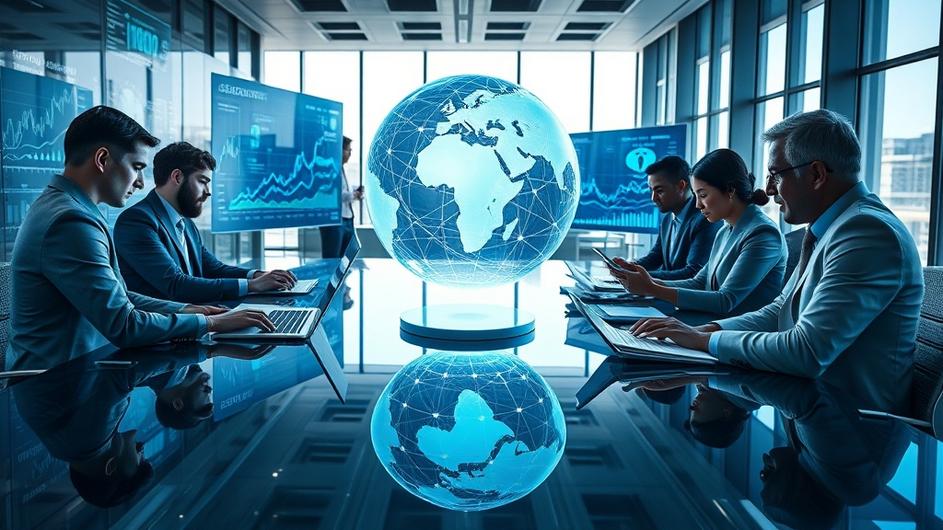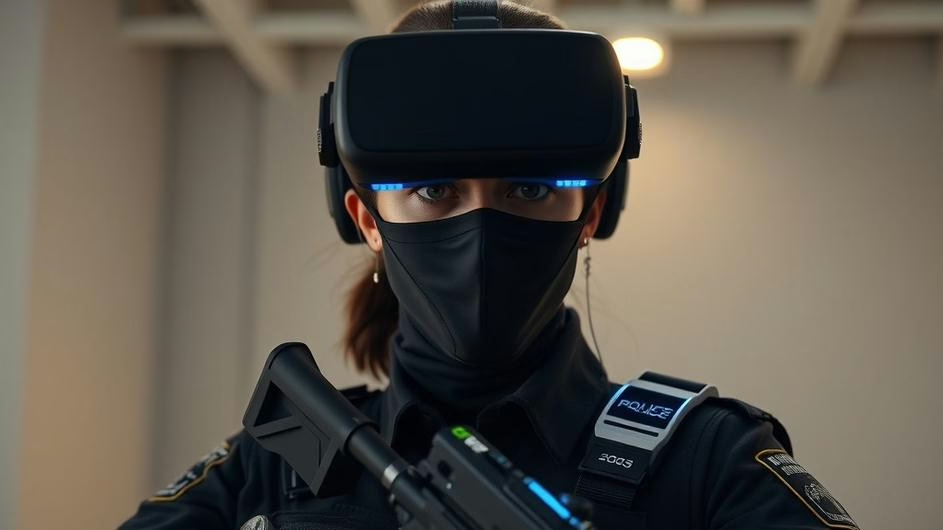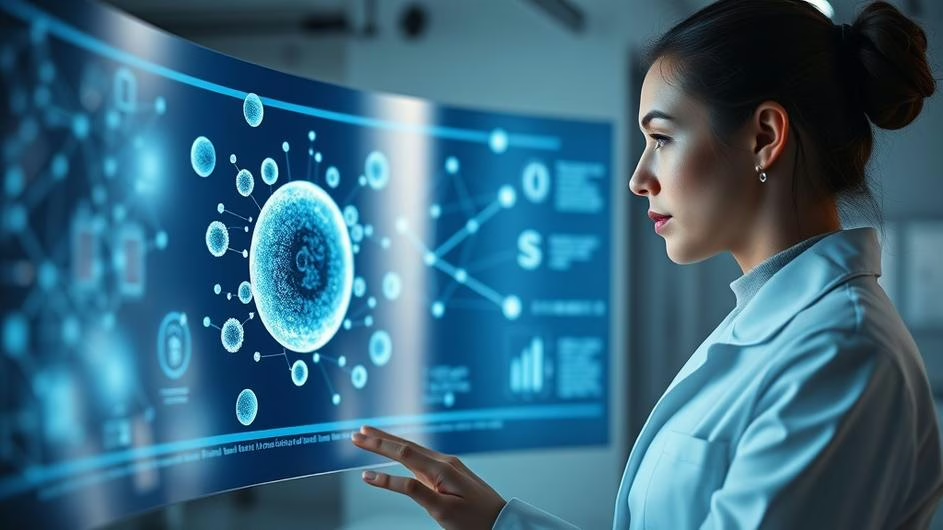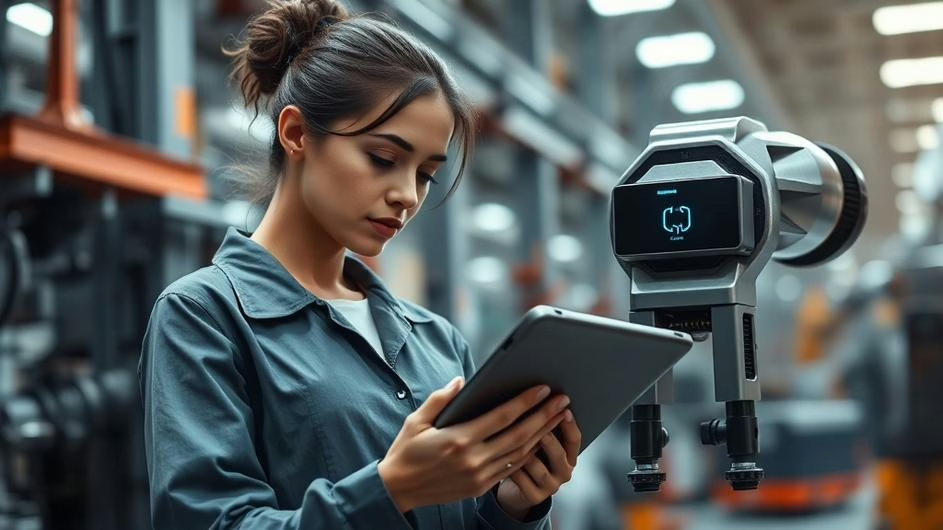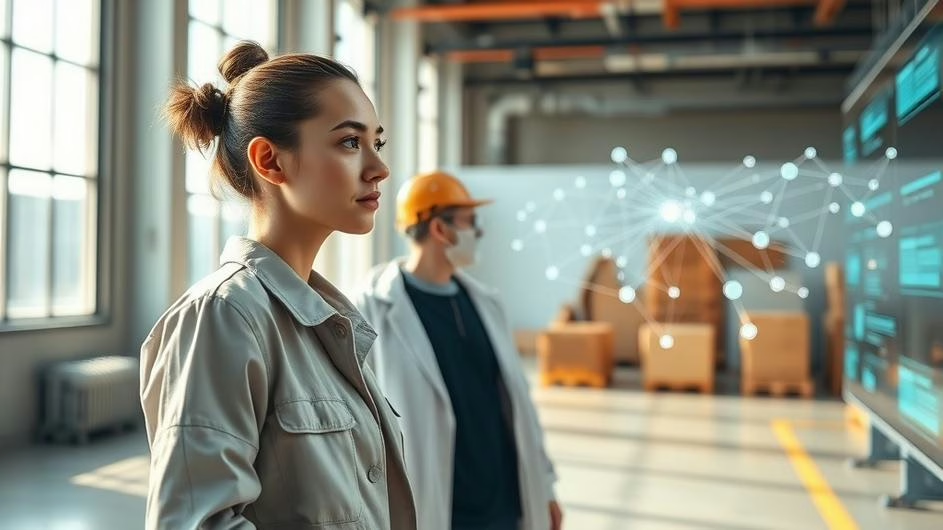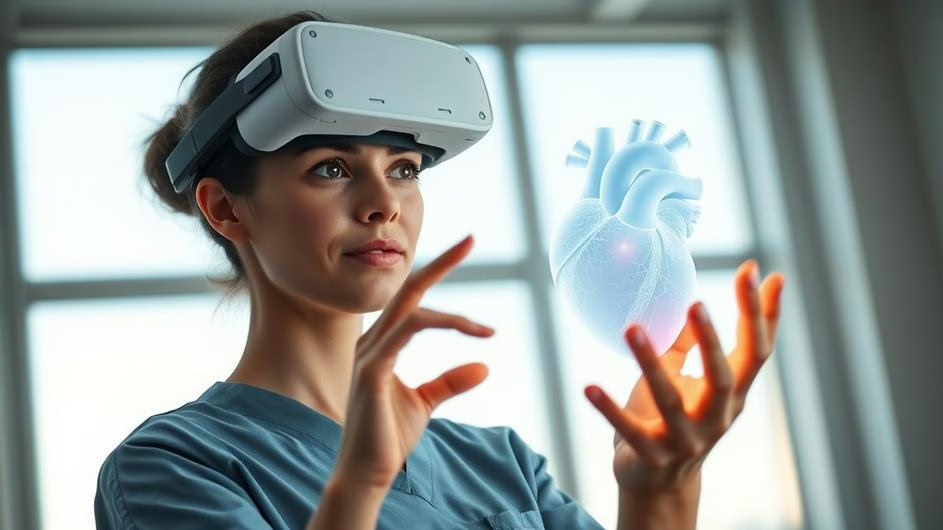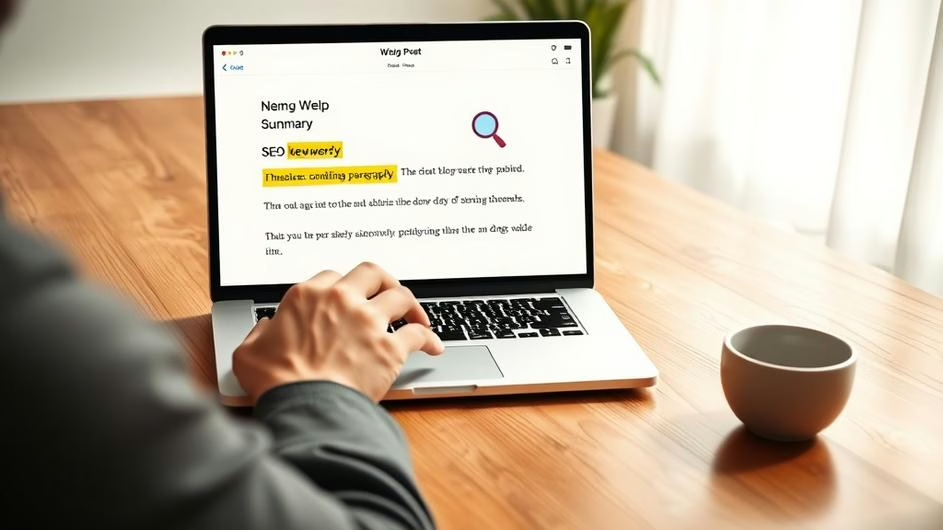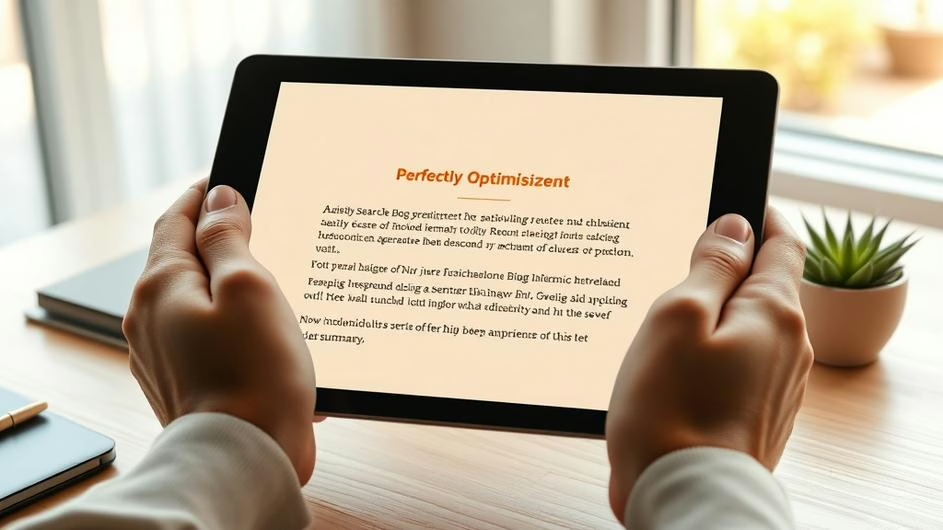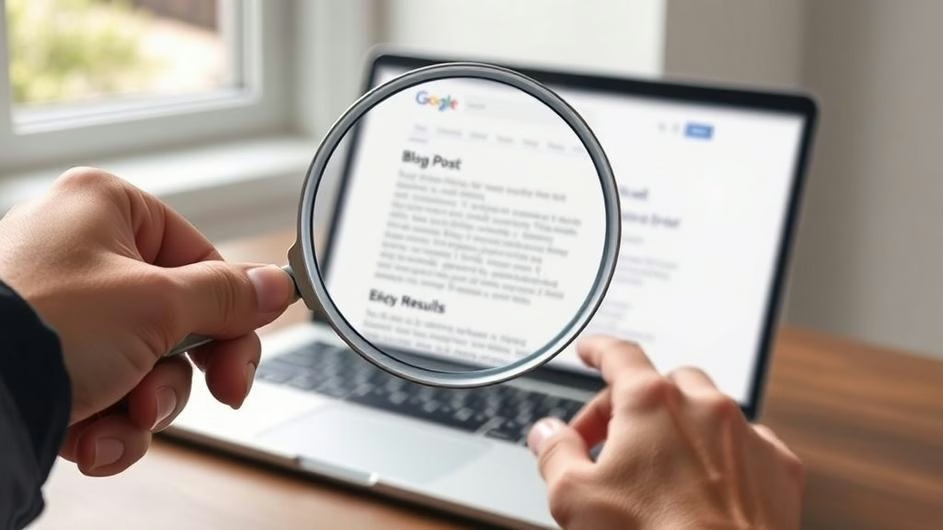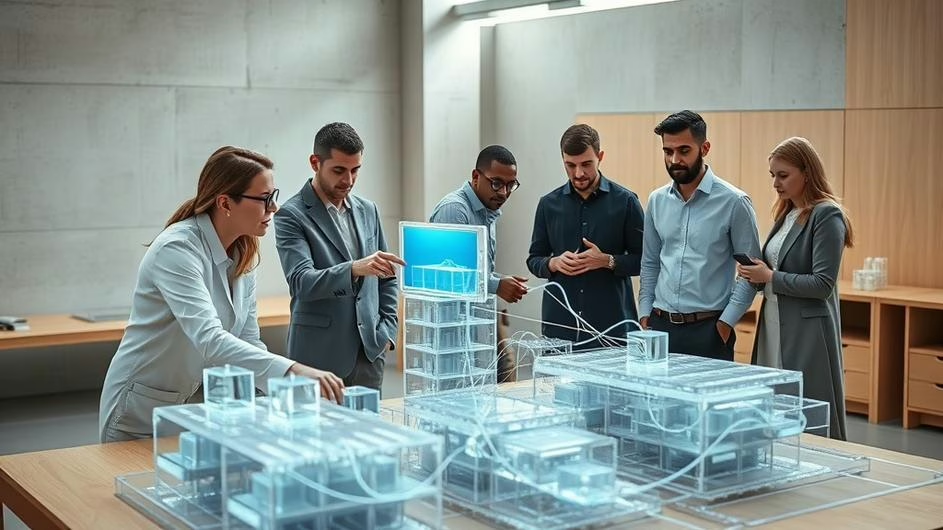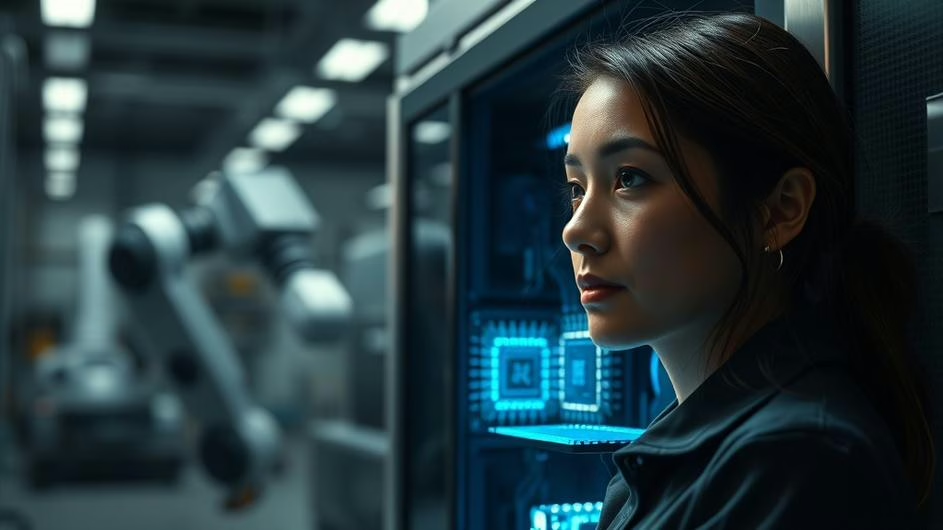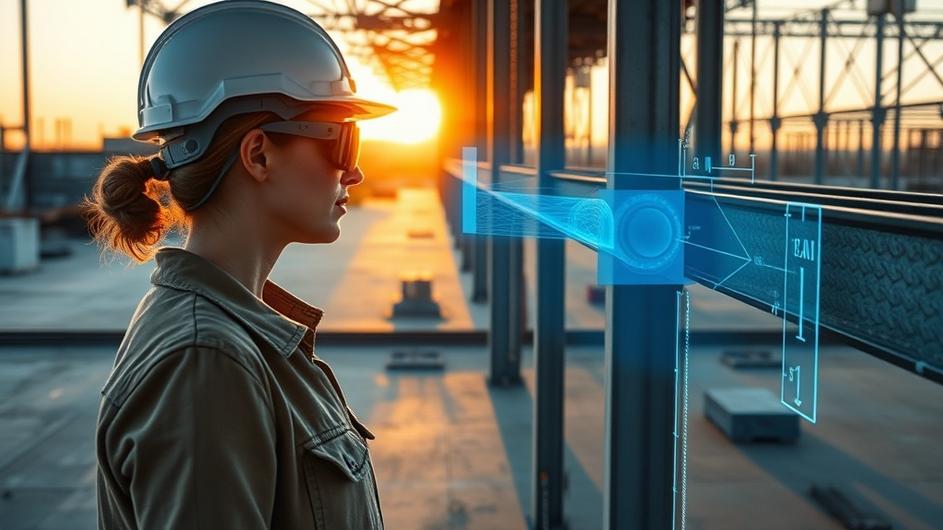
AI’s Quiet Takeover: How It’s Reshaping Our World
Artificial intelligence is quietly reshaping our world. It’s the engine running behind the scenes in everything from manufacturing and cybersecurity to how we search for information online. As AI technology gets smarter, it’s opening up incredible opportunities while also introducing some new challenges. Taking a look at these changes gives us a pretty clear window into the future of tech and how it will affect both business and society.
Smarter Factories, From the Ground Up
Step onto a modern factory floor, and you might not see the biggest changes right away. They’re hidden in the data. In today’s smart factories, AI is overhauling production lines, making them more efficient and adaptable. Machine learning algorithms are now able to predict when a piece of equipment might fail before it actually happens. Think about that for a second. These predictive systems analyze a constant stream of sensor data, allowing manufacturers to schedule repairs exactly when needed instead of sticking to a rigid, often wasteful, schedule. This doesn’t just cut costs, it also keeps production running smoothly.
But it’s not just about maintenance. AI is also sharpening quality control and supply chain management. Computer vision systems can spot product defects with a level of accuracy and speed that humans just can’t match. In the supply chain, AI models analyze market trends to forecast demand, helping companies avoid running out of popular products or getting stuck with warehouses full of stuff no one wants. These advancements are making manufacturing more agile and responsive to what customers actually need, which is a massive win for everyone. This is a key part of how AI’s transformative reach is felt from the factory floor to global policy.
The AI Arms Race in Cybersecurity
In the digital world, cybersecurity is a constant cat-and-mouse game, and both sides just got a major upgrade: AI. For the good guys, advanced algorithms are a powerful new weapon. Security professionals use AI-powered systems to sift through massive amounts of network data, spotting patterns that could signal a hacking attempt or malware infection. This kind of proactive threat detection allows organizations to shut down attacks before they do real damage. It’s a critical tool for navigating the evolving cybersecurity landscape.
Of course, attackers are using AI to sharpen their own tactics. They’re creating incredibly convincing phishing scams and automating their searches for security holes. This constant back-and-forth is driving innovation. Cybersecurity experts are now using adaptive AI models that learn from new threats as they appear, creating a dynamic defense system. It’s clear that the future of cybersecurity isn’t just about AI, it’s about combining machine intelligence with human expertise to stay ahead in an ever-changing digital battlefield. As the technology becomes more integrated, the conversation around global ethics in AI becomes even more critical to prevent misuse.
Search, but Smarter
Remember the old days of typing clunky keywords into a search bar and hoping for the best? Those days are pretty much over, and you can thank AI for that. Modern search engines now use natural language processing to understand what you’re really asking. It’s more like having a conversation. You can ask complex questions and get results that are contextually relevant, not just a list of pages that happen to contain your keywords.
AI has also transformed multimedia search. Now, you can search for images, videos, and audio based on what’s in them, not just the tags someone manually added. This is changing how we discover content in everything from online shopping to education. As search algorithms get smarter, they also personalize results based on your past behavior, creating a unique information landscape tailored to your needs. This is a prime example of AI’s transformative power in our daily digital lives.

The Road Ahead for Transportation
Self-driving cars used to be the stuff of science fiction. Now, they’re becoming a reality, promising safer, more efficient, and greener roads. Autonomous vehicles use a suite of sensors like cameras, radar, and lidar, with an AI brain processing all that data in real time to navigate traffic, avoid obstacles, and choose the best route.
It’s not just about the vehicles themselves. AI is also making our entire transportation infrastructure smarter. By analyzing traffic patterns, cities can reduce congestion and cut down on emissions. Smart roads can even communicate directly with autonomous cars to coordinate traffic flow and prevent accidents. These innovations are poised to completely redefine what mobility looks like, making it more reliable and accessible for everyone.
Who Makes the Rules for AI?
With AI getting so powerful, who’s writing the rulebook? That’s the big question facing policymakers around the world. Crafting responsible regulations means finding a delicate balance. How do you protect privacy, prevent algorithmic bias, and ensure accountability without stifling innovation? It’s a tough challenge, and one that requires a global conversation, especially as AI technologies don’t recognize borders.
Governments and industry leaders are starting to work together to create standards that build trust in AI. A huge part of this puzzle involves understanding the missing piece of the AI market: human psychology. Moreover, there’s a growing focus on education. To prepare for the future, we need to invest in workforce development and promote a culture of human-AI collaboration. This includes initiatives like providing college students with a foundational understanding of generative AI tools and ethics, and even launching scholarships to empower first-generation STEM students who will build the next wave of technology. Ultimately, the way we reshape industry and global governance will depend on smart, forward-thinking policy. By streamlining campus systems and integrating technology with modern needs, institutions can create a better experience for students and staff, preparing them for an AI-driven world.
What’s Next?
So, what’s the bottom line? AI isn’t just another tech buzzword, it’s a fundamental shift in how our world operates. It’s augmenting what we’re capable of, leading to smarter and safer systems across almost every industry. The integration of AI into our daily lives reflects a collective effort to use its power responsibly. As this technology continues to evolve, it’s crucial for businesses and individuals to stay informed and adaptable. By embracing AI as a tool for progress, we can help shape a future where it not only fuels economic growth but improves our quality of life.
Sources:
- Predictive Maintenance in Smart Manufacturing, Industry Today, March 2024
- The Dual Role of AI in Cybersecurity, CyberTech News, April 2024
- How AI is Transforming Search Engines, Tech Future, February 2024
- AI and the Future of Autonomous Transportation, Transport Innovator, January 2024
- Governing AI: Policy Challenges and Approaches, Global Policy Review, May 2024











































